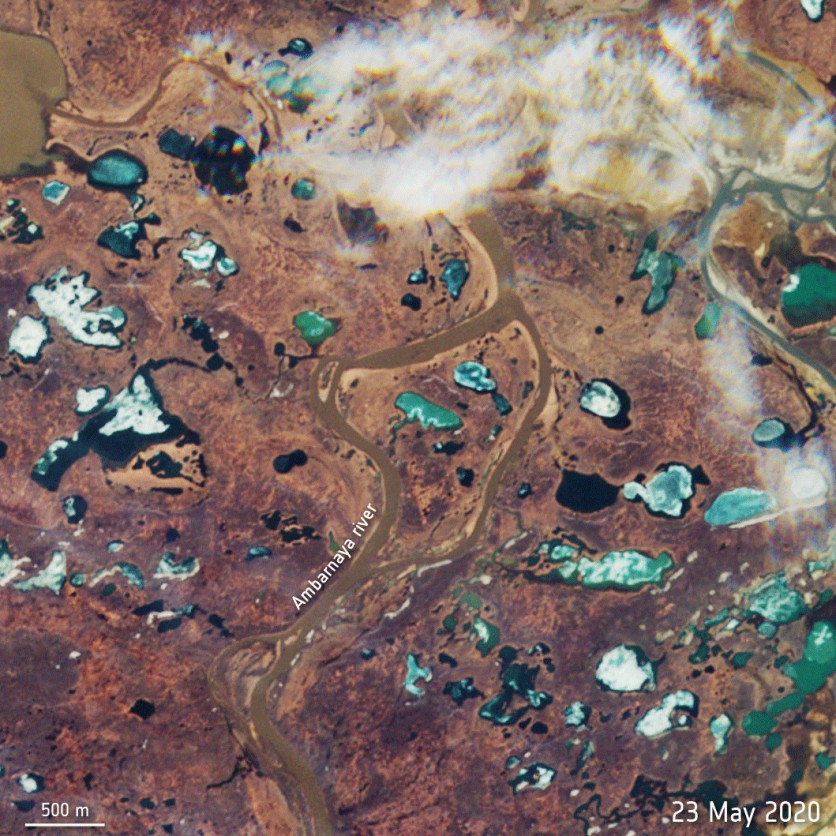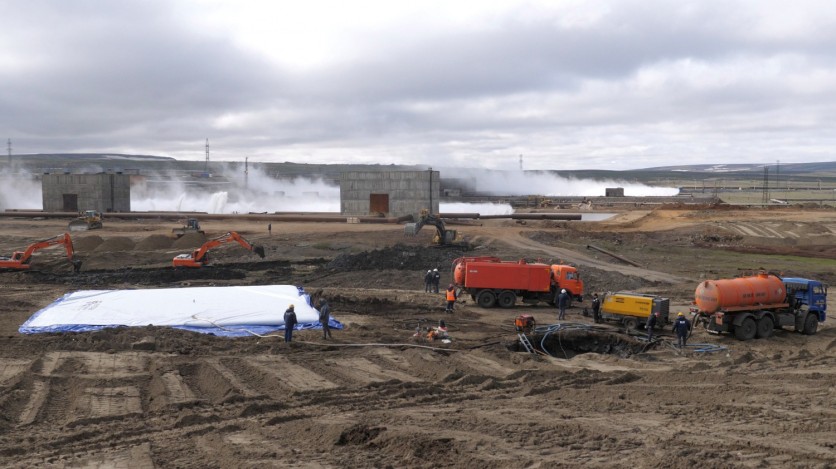On Thursday, June 4, CNBC reported Russia's declaration of 'state of emergency' in a region within the Arctic Circle. This was after a powerplant accidentally leaked more than 20,000-ton oil residues heading to the river. Experts said that a 'melting permafrost' caused the fuel tank to collapse in the river, making it a ticking bomb for other viruses and diseases to spread out.
Russia may have new viruses soon due to a massive oil spill

On May 29, an oil spillage happened in the far Northern part of Russia. A fuel tank with oil products from the industrial plant, operated by a Norilsk Nickel subsidiary, leaked 21,000 tons of oil, causing a 135-square mile oil spill all over Arctic Circle.
Russian President Vladimir Putin discovered the massive spillage and questioned how the local authorities did not quickly clean the oil from spreading directly on the river. He was also shocked when the locals said that they only knew about the spillage two days after the accident took place.
"What are we to learn about emergency situations from social networks? Are you alright health-wise over there?" Putin said the news agency reported Wednesday.
According to USA Today via Rosprirodnadzor, the Federal Service for Supervision of Natural Resources said that 6,000 tons of oil spilled onto the ground, and another 15,000 tons into the water. The oil products got into the Ambarnaya and Daldykan rivers and in almost all their tributaries.
How did the spillage happen?

As explained by the company, the diesel fuel storage tank that was holding the tons of oil was made out of permafrost-- soil that is frozen-- but failed to hold it to the ground, which results in the spillage and caused fire.
"The accident was caused by a sudden sinking of supporting posts in the basement of the storage tank," the company said in a statement.
Science Alert said that due to the spillage, an estimated 1.7 trillion tonnes of carbon in the form of frozen organic matter was created. It contains roughly twice as much carbon - mainly in the form of methane and CO2 - as Earth's atmosphere.
That said, it was reportedly called a 'ticking bomb' of the emergence of other viruses and diseases.
May new viruses occur in Russia?
The report says that Russia's massive oil spillage could cause new viruses to pop in overtime. The outbreak of viruses from dead animal carcasses uncovered by the permafrost may happen, according to Science Alert.
In 2014 scientists revived a giant but harmless virus, called Pithovirus sibericum, that had been locked in the Siberian permafrost for more than 30,000 years.
Now, that's a ticking bomb to be warned about.
ALSO READ: Russia Launches Anti-Satellite Missile; Astronauts Feared to Have Coronavirus
ⓒ 2025 TECHTIMES.com All rights reserved. Do not reproduce without permission.




